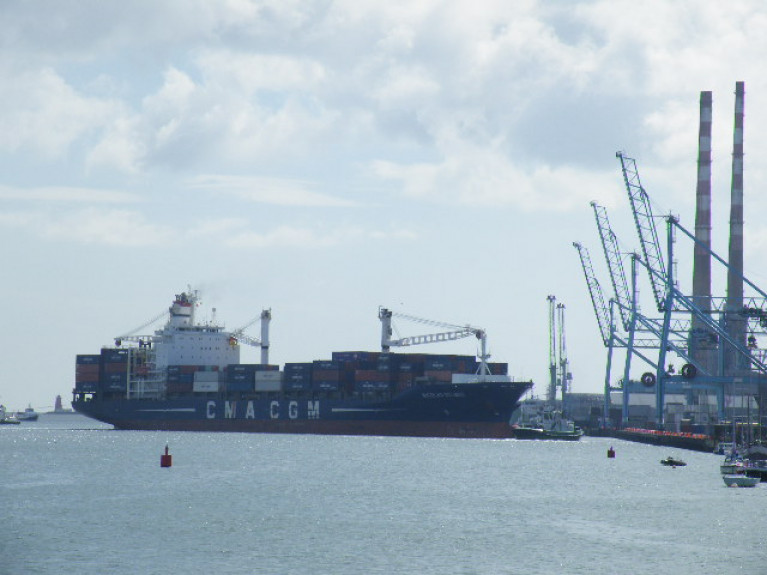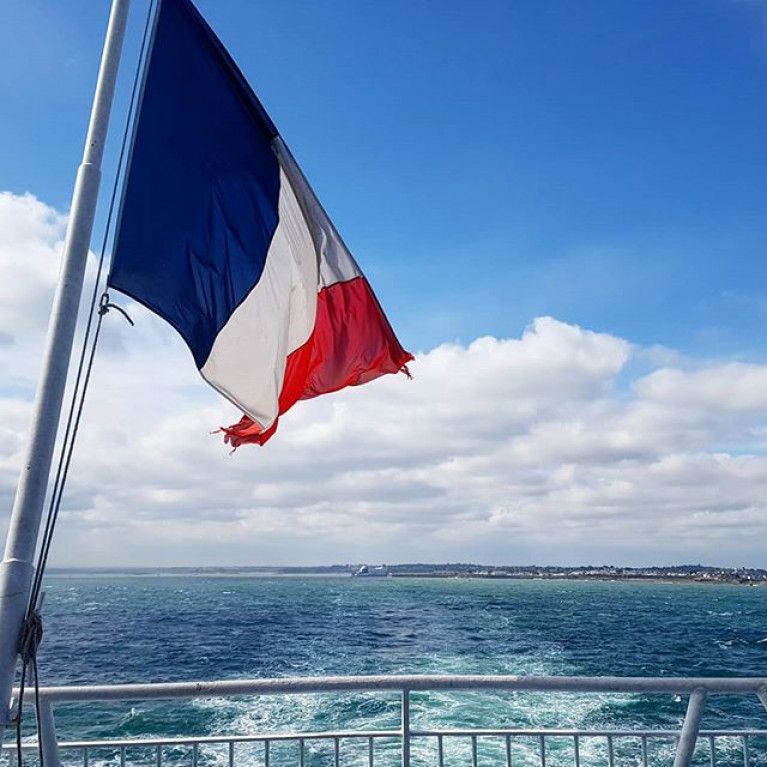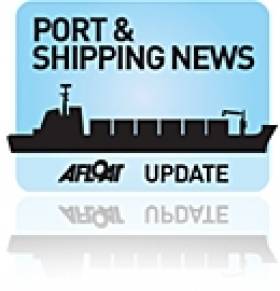Displaying items by tag: CMA CGM
Containership Giant CMA CGM Group Bids for French Daily Newspaper
French media are reporting that operator CMA CGM is offering €81m ($92m) for a controlling 89% stake in 'La Provence', a daily published in Marseille,the French liner giant’s home city, so writes Tradewinds.
CMA CGM’s bid is said to easily exceed the only rival offer submitted by NJJ Presse Sud, a holding controlled by French media entrepreneur Xavier Niel.
On top of the outright acquisition price, CMA CGM chief executive Rodolphe Saade also pledged to invest an additional €35m in order to spruce up the newspaper.
The 89% stake in La Provence, a title with a circulation of about 80,000 copies in 2020 according to Wikipedia, is sold via court proceedings after the death last year of its former owner Bernard Tapie — a controversial French media mogul.
CMA CGM did not immediately respond to a request for comment or to clarify whether the bid comes from the company or personally from Saade, who has been open about wanting to invest in the newspaper.
When quizzed in an interview with French daily Le Monde earlier this month about the reasons for his interest, Saade was quoted as saying: “Don’t look for any complex reasons: I read the paper and I like it. La Provence is on sale, so I went for it.”
An investment in La Province would help safeguard hundreds of jobs at the newspaper. In line with booming profits during the coronavirus pandemic (see graph), big liner companies like CMA CGM have been eager to display more social responsibility amid calls for windfall taxes to be imposed on them.
In a similarly motivated move, CMA CGM invested $30m in ailing compatriot Brittany Ferries last year, to help the shortsea operator recover from its loss of passenger traffic during the Covid-19 pandemic.
For further reading on the French containership giant and European rival, Meditterranean Shipping Company (incl. Irish operations) that also is looking into making substantial investments.
Brittany Ferries and CMA CGM Enter Partnership to Combine Passenger & Freight Transport
Brittany Ferries and the CMA CGM Group, a world leader in shipping and logistics, announced that CMA CGM has agreed to make a €25m investment in the largest ferry company operating under the French flag, including €10m in quasi-equity.
Through this agreement, CMA CGM is seeking to support Brittany Ferries’ post-Covid-19 recovery.
The announcement was made during the Assises de l’économie de la mer event, the largest annual meeting of participants in France’s sea economy.
- Letter of Intent for an investment to support Brittany Ferries’ post-Covid-19 recovery
- Commercial partnership unlocking synergies in freight transport across the English Channel and to the Iberian Peninsula
- Development of LNG excellence in France
The partnership will help to unlock synergies between the two companies in passenger and freight transport. By harnessing the respective areas of expertise of the CMA CGM Group and Brittany Ferries, it will also help promote the development of cross-Channel shipping and underpin France’s position in the sector. Under this agreement, a representative of the CMA CGM Group will join Brittany Ferries’ Supervisory Board.
Synergies in freight shipments across the English Channel and to the Iberian Peninsula
The agreement establishes a commercial partnership between the CMA CGM Group and Brittany Ferries through the use of available cargo space on board Brittany Ferries’ services to the United Kingdom, Ireland and the Iberian Peninsula. The transportation of goods aboard Brittany Ferries’ roll-on roll-off (roro) ships will help expand the CMA CGM Group’s offering in the roro sector for the Atlantic and northern coast of France to destinations in the United Kingdom.
The partnership with CMA CGM will also pave the way for Brittany Ferries to gain more expertise in freight and logistics. It will help the company to adapt more easily to the post-Covid-19 trends in goods transportation, including the transport of unaccompanied trailers, and to offer new transport services so it can better meet the needs of its customers.
Through this agreement, both groups will be able to introduce new ro ro services.
Development of LNG excellence in France
CMA CGM and Brittany Ferries, both of which are committed to developing liquefied natural gas (LNG) to power their ships, will be looking at ways of sharing their LNG knowledge and resources in areas such as training for French crews and safety procedures.
Both companies have also undertaken to introduce more environmentally-friendly shipping and logistics solutions.
Two new LNG-powered ships are due to join Brittany Ferries’ fleet next year and in 2023. The new Ro-pax vessels, to be named Salamanca and Santoña, will operate services between the United Kingdom and Spain.
In addition, Brittany Ferries is about to introduce a new rail freight service to expand its multimodal offering. By year-end 2022 the company will offer its customers an unaccompanied trailer transport service on the Atlantic coast rail network between Bayonne and Cherbourg.
Container Giant CMA CGM Signs Three Major Trade Agreements
#ContainerAgreement– CMA CGM, the world's third largest shipping container operator, has announced the signature of three major agreements with China Shipping Container Lines (CSCL) and United Arab Shipping Company (UASC).
Under the name of 'Ocean Three,' they concern the Asia-Europe, Asia-Mediterranean, Transpacific and Asia-United States East Coast maritime trades.
The agreements (a combination of Vessel Sharing Agreements, Slot Exchange Agreements and Slot Charter Agreements) will complete the CMA CGM offering on the biggest global maritime markets, the French ocean shipping group said in a statement.
On the Asia-Europe trade, four weekly services will be offered , joining the two existing services, making a total of six departures per week
For more on this story, LloydsLoadingList.com has a report.































































